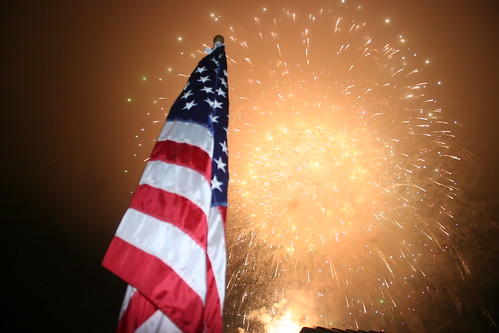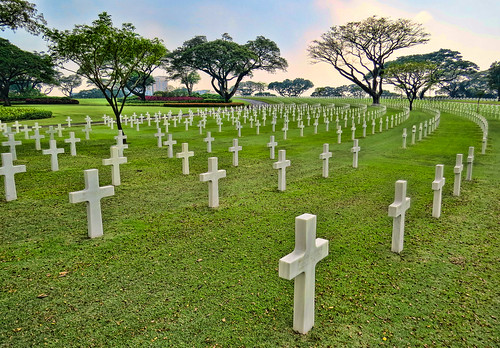(Another in the continuing series of quotes to start the week.)
For us in the United States, today is Independence Day. Back in 1776, our Founding Fathers pledged their lives, fortunes, and sacred honor to the pursuit of establishing the U.S. as a free country. Very shortly thereafter, the colonies-turned-states fought the Revolutionary War to secure their — and, by extension, our — independence.
Keeping in mind the price the patriots paid for the freedom we enjoy, it seems appropriate this week to consider this quote from Benjamin Franklin:
The way to secure peace is to be prepared for war. They that are on their guard, and appear ready to receive their adversaries, are in much less danger of being attacked, than the supine, secure, and negligent.
(Image: “Happy Independence Day!” by {Salt of the Earth}, on Flickr under Creative Commons.)
This seems to be an expansion of Vegitius’s observation, Qui desiderat pacem, praeparet bellum — “Let him who desires peace, prepare for war.” I feel certain that the well-read Franklin knew the Vegitius quote, but his addendum caught my eye.
Are we as a country on our guard, and do our enemies (or would-be enemies) see us as ready to receive their advances and blunt their attacks? Perhaps on the level of nation-states, yes: our armed forces remain strong and vigilant. But seemingly not on the lower levels, the levels of the day-to-day where individuals and small groups of radicals operate and where soft targets beckon. In general, as a population it would seem we are not prepared for war. We as a society have given that over to professionals — I was privileged and proud to be one of those professionals, once upon a time — but throughout history professionals have had difficulty adapting to new forms of war.
We seem loath to name this ongoing ideological conflict as “war,” however. (Over a decade ago I pointed out our reluctance to name war and attacks and enemies as such when it comes to the “recurring jihad.”) We seem unwilling, in the sense of being unable to muster the national will, to develop and pursue a coherent strategy to fight this war. Perhaps that is because we do not understand it. Maybe we have confused preparing for war with desiring war. But we have other instruments of power at our disposal besides the military instrument, and they do not seem to be availing us much.
Have we gotten to the point where we are “supine, secure, and negligent”? Perhaps not completely, but I get the impression that many people today who live in peace and relative safety take it for granted, as if it is our birthright and a permanent feature of our society. We would do well to remember that peace, like life, is precious and fleeting; it needs to be nurtured and protected, lest it be lost.
This week, after the fireworks have faded, I hope during our normal routines we will give some additional thought to our independence, our freedom, and give thanks for those who protect it every day — not just on the holiday — by being prepared to fight for it.










